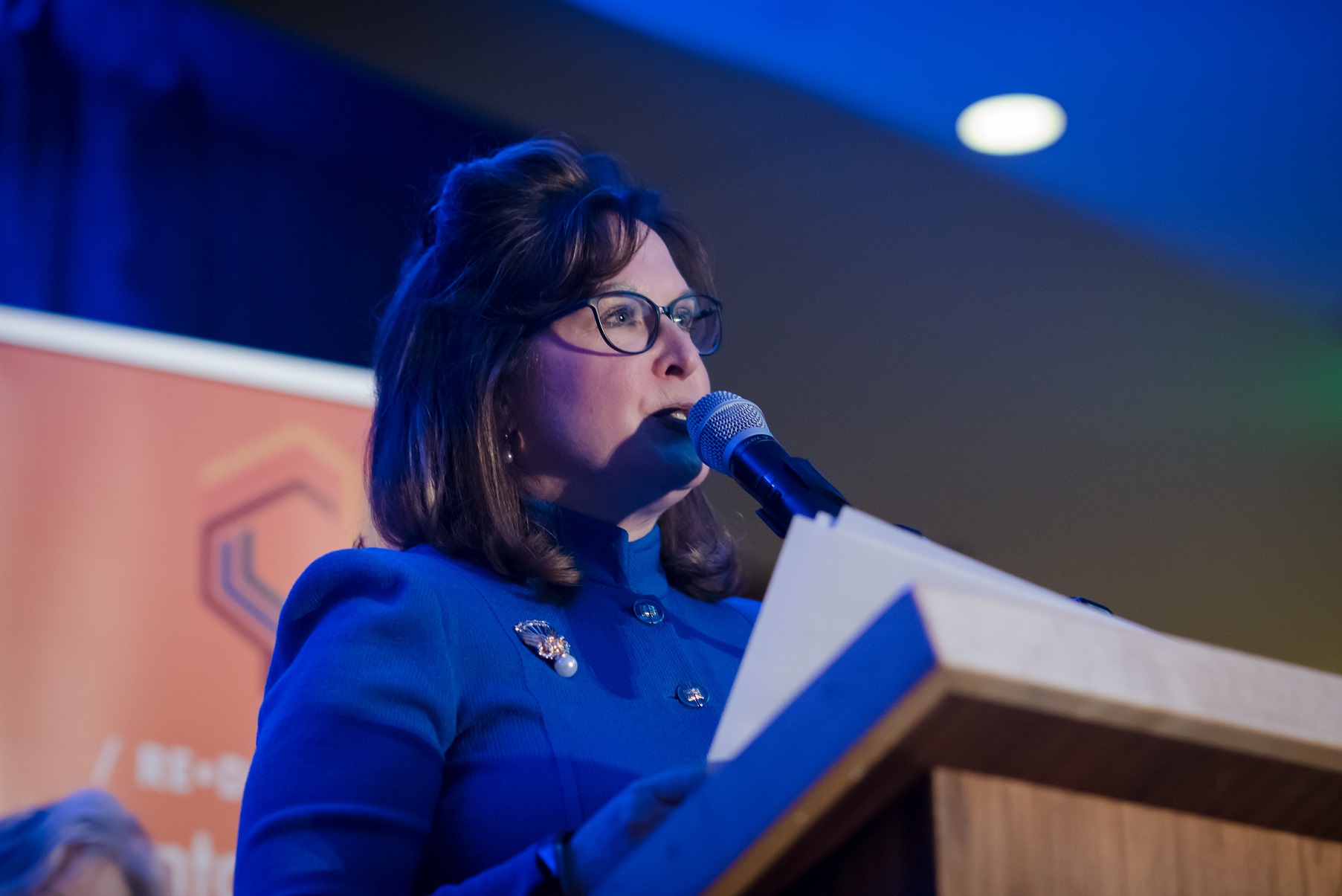We recently connected with Diane M. Simard and have shared our conversation below.
Diane M., looking forward to hearing all of your stories today. Let’s kick things off with your mission – what is it and what’s the story behind why it’s your mission?
My second chance at life began on February 10, 2015, the day I was diagnosed with late Stage III breast cancer.
I was about to turn 50, hoping the next chapter in my life would result in fewer battles with myself. For years I had struggled to maintain my weight, grow my hair longer, read more, learn more, do more, and love myself more.
Then, straight out of nowhere came a horrifyingly fascinating cancer experience, complete with five months of chemo, hair loss, relentless nausea, depression, lumpectomy surgery, anxiety, more depression, two months of radiation, and the most uplifting support from family and friends I had ever experienced. I journaled to combat the anxiety, emptying my thoughts and fears into a safe place.
Near the end of chemo, I asked my medical oncologist for a referral to a therapist who would understood what it was like for a “type A business woman like me who wants to believe she’s in control but knows she’s not in control” to experience breast cancer. My oncologist said she knew such therapists existed, but that she didn’t personally know of any. But if I did find a therapist, they likely wouldn’t accept health insurance.
I was surprised, stunned, and angry. At that moment I decided my life’s calling was to dive into why so little attention was paid to the psychological trauma cancer creates for patients, survivors and their caregivers. As it turns out, the interdisciplinary field at the intersection of physical, psychological, social, and the behavioral aspects of cancer for patients and caregivers is called “psycho-oncology.”
Two months after my treatment was over, representatives from the University of Denver’s Graduate School of Professional Psychology announced at a public launch event the night before my one-year anniversary as a cancer survivor that I had seed-funded and was the founder of a new specialty. It is called the Center for Oncology Psychology Excellence (COPE), the first of its kind at the graduate level in the entire country. That same month I began writing the manuscript for my multiple award-winning book, The Unlikely Gift of Breast Cancer, ultimately named one of the best breast cancer books of all time by Book Authority.
Today, I am a psycho-oncology influencer – blogging, speaking and advocating for more attention and resources to be paid to the life-long psychological trauma cancer creates. I also coach business leaders to help them develop and expand their messaging platforms to increase their productivity and impact. Business-wise, I am an investor in and serve on the board of an electric airplane company and am a patient advisor for Blue Note Therapeutics, which is developing prescription-based digital therapy technologies to reduce the distress caused by cancer.
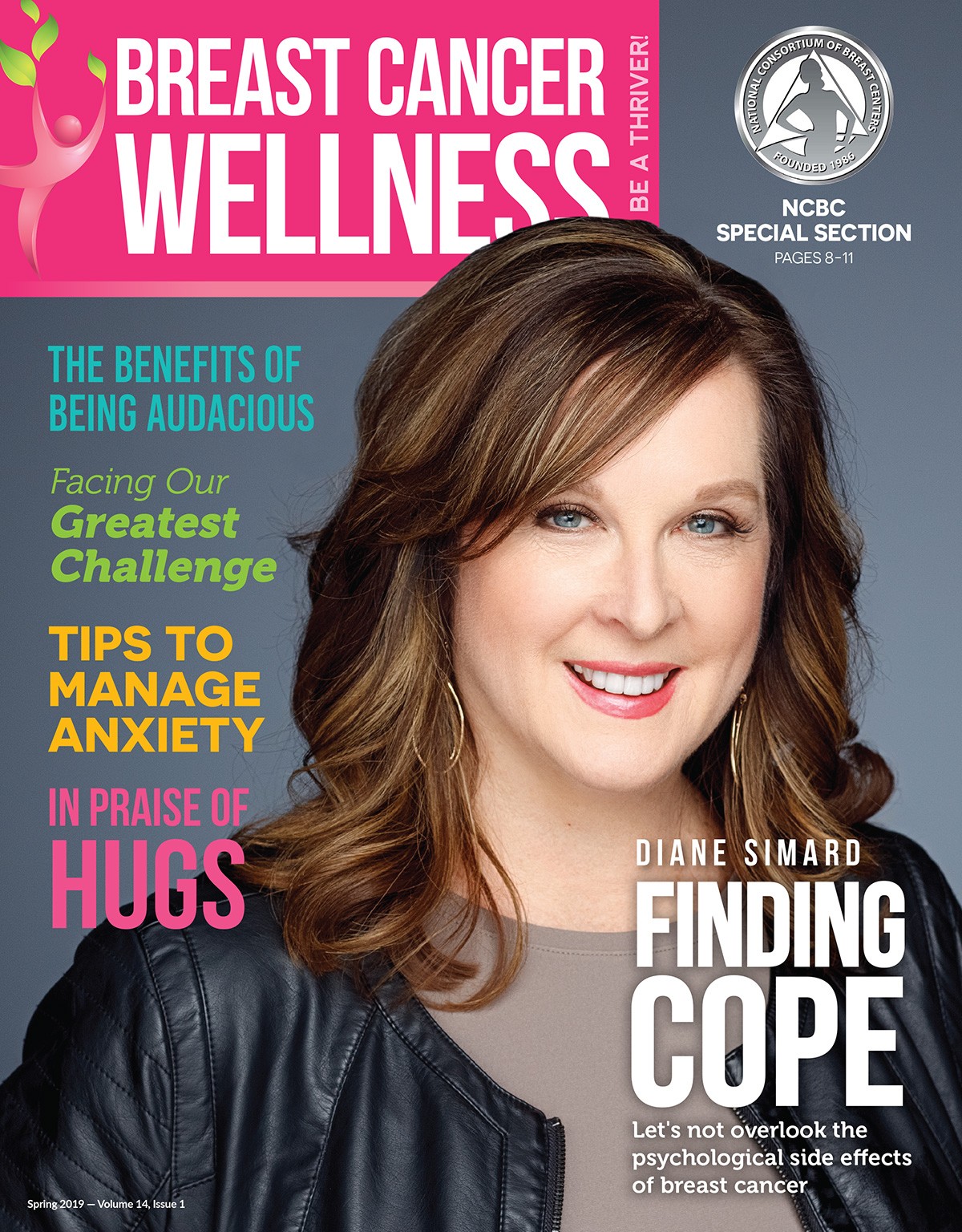
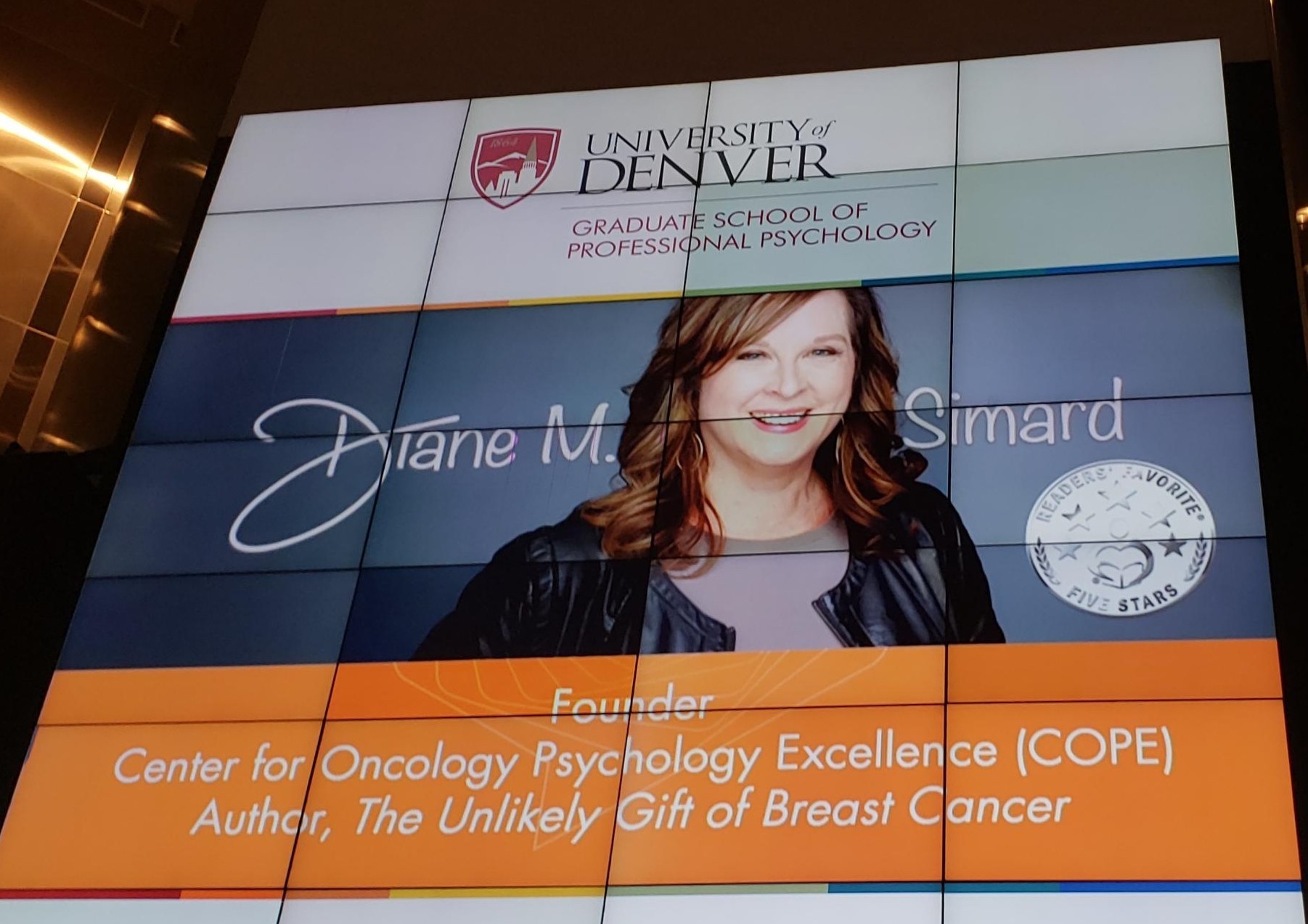
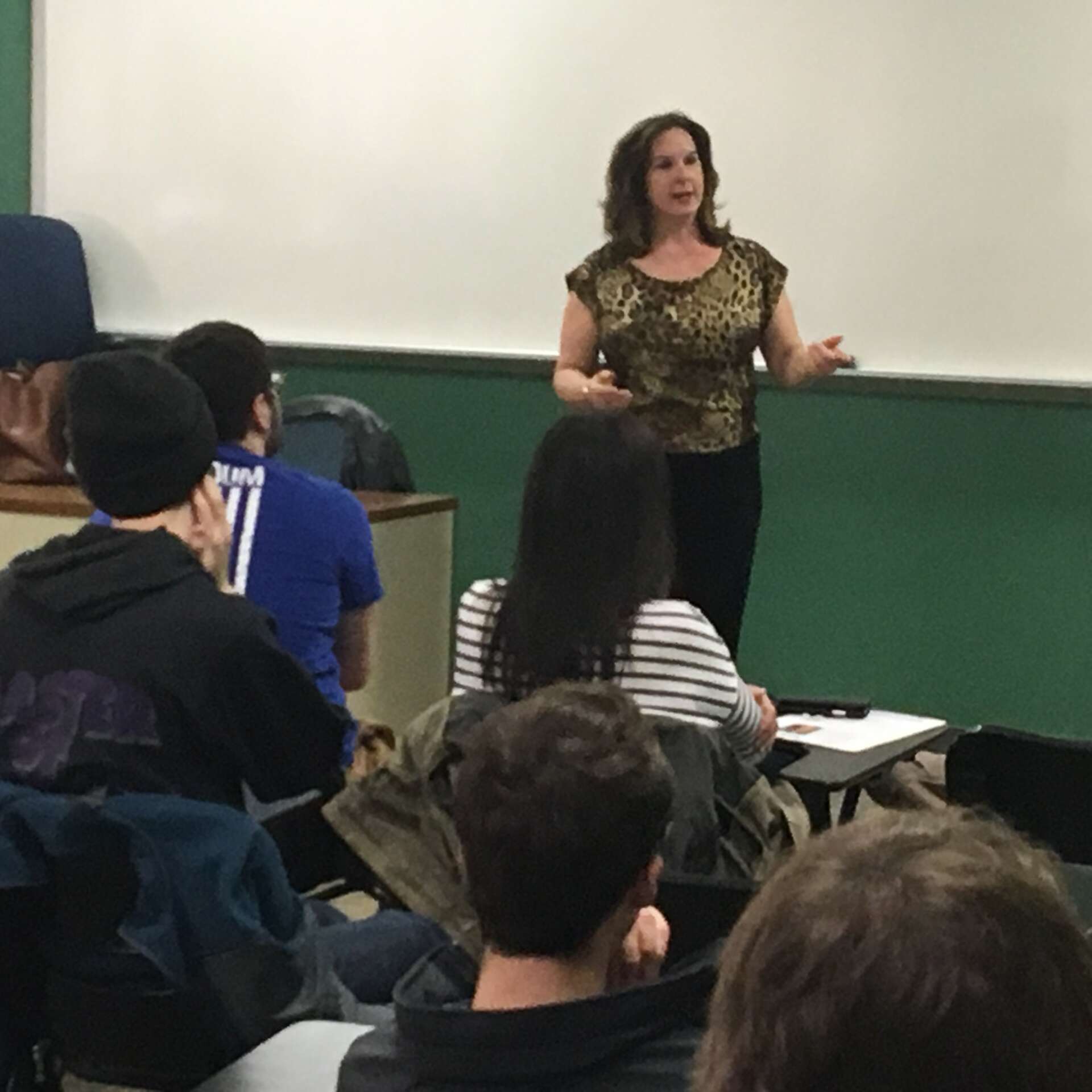

Diane M., love having you share your insights with us. Before we ask you more questions, maybe you can take a moment to introduce yourself to our readers who might have missed our earlier conversations?
My versatile degree in journalism with an emphasis in public relations has opened doors to experiences in a broad array of industries, from book publishing to student loan collections, from a non-profit that provided electric and natural gas utility services to information technology in the aerospace government services industry, to electronics recycling and consumer banking, and now to electric airplanes, cancer, and mental health. In the early 2000s, I was in business with my now ex-husband, providing information technology services to the U.S. military, a company he started that we brought back from the brink of corporate and personal bankruptcy, then sold in 2004 for $36 million cash. We divorced soon after, and I tried my hand at angel investing, to help other entrepreneurs launch their disruptive technologies. Many valuable lessons later, I still support entrepreneurship, but as a paid advisor and connector.
I advise and assist senior business leaders with:
• Strategy
• Messaging
• Personal branding
• Networking/Introductions
• Ghostwriting their “personal platform” books to distribute during keynote speeches
• Writing speeches and articles
In addition, I am an advisor and board member to companies and organizations looking to:
• Expand their reach and impact through my network of followers
• Market to successful middle-age women business executives
• Reach out to those impacted by cancer
• Educate their constituents on the role the mind plays in healing the body
Problem solving — or better yet, proactively identifying situations before they become problems (risk aversion) — is what I do. Chances are good that if I can’t outright help diffuse a crisis situation, I know someone who can.
What sets me apart is I only work with leaders to resolve a problem once. That’s called a learning experience, and it requires a process change to ensure it doesn’t happen again. If a client does not embrace the attitude of process improvement and implementing higher standards, we are not a good fit.
Tangible results and quantifiable impact are what matter most to me. One of my proudest moments occurred recently when I learned that 163 doctoral-candidate students at the University of Denver’s Graduate School of Professional Psychology have taken at least one of the course offerings in the Center for Oncology Psychology Excellence’s (COPE) specialty that I seed-funded and founded in 2016.
The qualities that best describe me: Results. Impact. Credibility. Trust. All while trying to not take myself or anyone else too seriously.
My second chance at life began on February 10, 2015, the day I was diagnosed with late Stage III breast cancer.
I was about to turn 50, hoping the next chapter in my life would result in fewer battles with myself. For years I had struggled to maintain my weight, grow my hair longer, read more, learn more, do more, and love myself more.
Then, straight out of nowhere came a horrifyingly fascinating cancer experience, complete with five months of chemo, hair loss, relentless nausea, depression, lumpectomy surgery, anxiety, more depression, two months of radiation, and the most uplifting support from family and friends I had ever experienced. I journaled to combat the anxiety, emptying my thoughts and fears into a safe place.
Near the end of chemo, I asked my medical oncologist for a referral to a therapist who would understood what it was like for a “type A business woman like me who wants to believe she’s in control but knows she’s not in control” to experience breast cancer. My oncologist said she knew such therapists existed, but that she didn’t personally know of any. But if I did find a therapist, they likely wouldn’t accept health insurance.
I was surprised, stunned, and angry. At that moment I decided my life’s calling was to dive into why so little attention was paid to the psychological trauma cancer creates for patients, survivors and their caregivers. As it turns out, the interdisciplinary field at the intersection of physical, psychological, social, and the behavioral aspects of cancer for patients and caregivers is called “psycho-oncology.”
Two months after my treatment was over, representatives from the University of Denver’s Graduate School of Professional Psychology announced at a public launch event the night before my one-year anniversary as a cancer survivor that I had seed-funded and was the founder of a new specialty. It is called the Center for Oncology Psychology Excellence (COPE), the first of its kind at the graduate level in the entire country. That same month I began writing the manuscript for my multiple award-winning book, The Unlikely Gift of Breast Cancer, ultimately named one of the best breast cancer books of all time by Book Authority.
Today, I am a psycho-oncology influencer – blogging, speaking and advocating for more attention and resources to be paid to the life-long psychological trauma cancer creates. I also coach business leaders to help them develop and expand their messaging platforms to increase their productivity and impact. Business-wise, I am an investor in and serve on the board of an electric airplane company and am a patient advisor for Blue Note Therapeutics, which is developing prescription-based digital therapy technologies to reduce the distress caused by cancer.
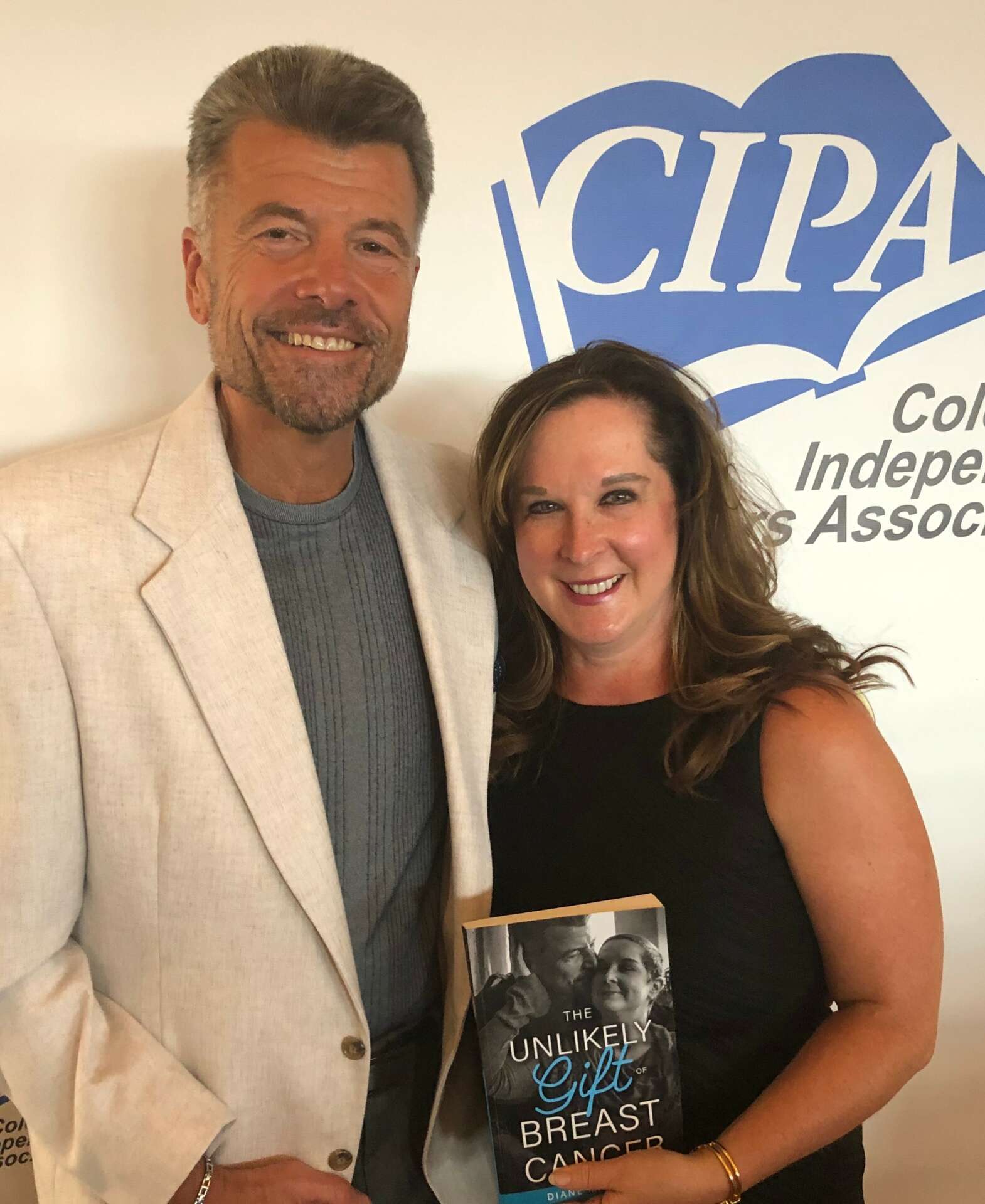
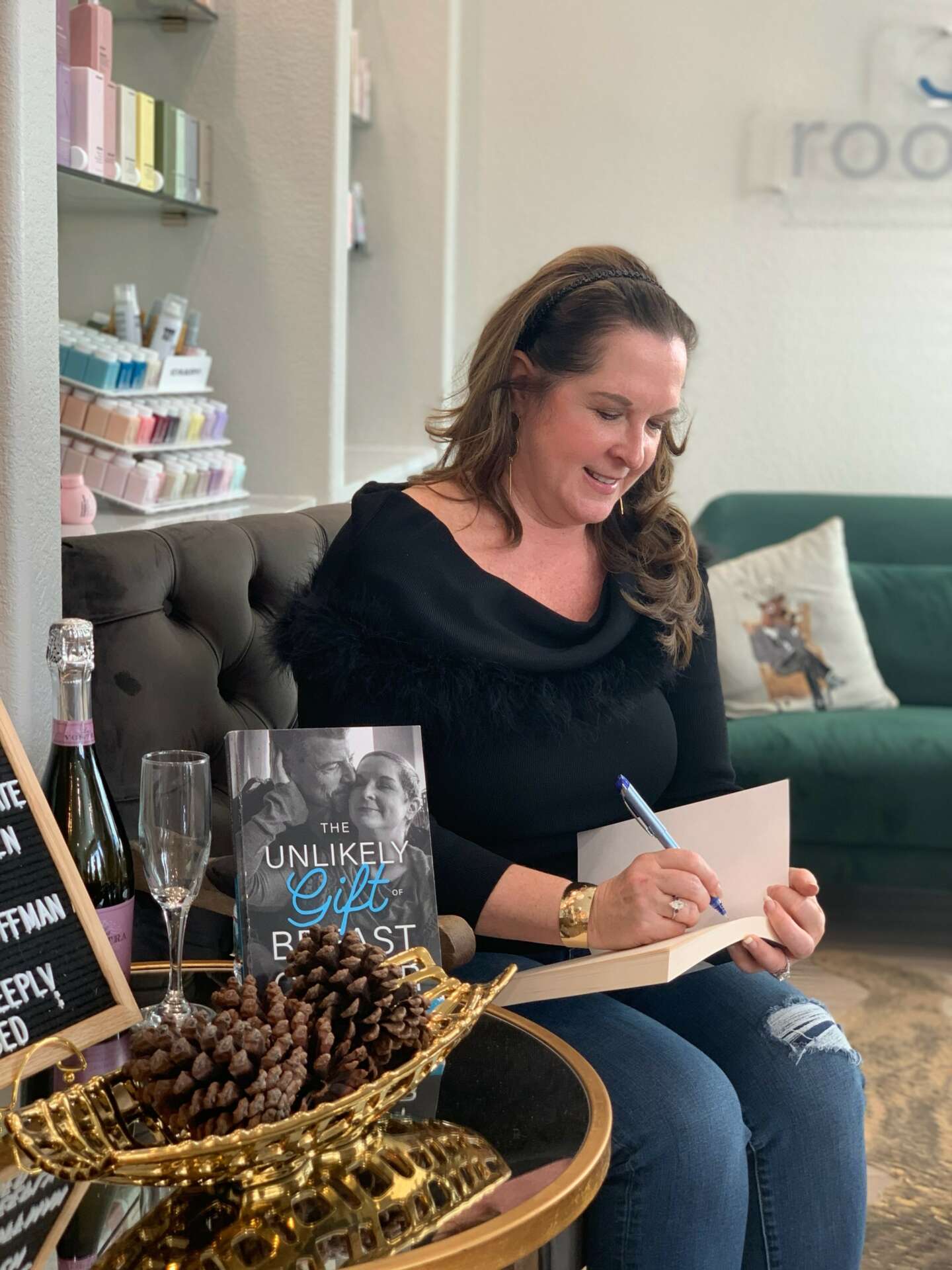
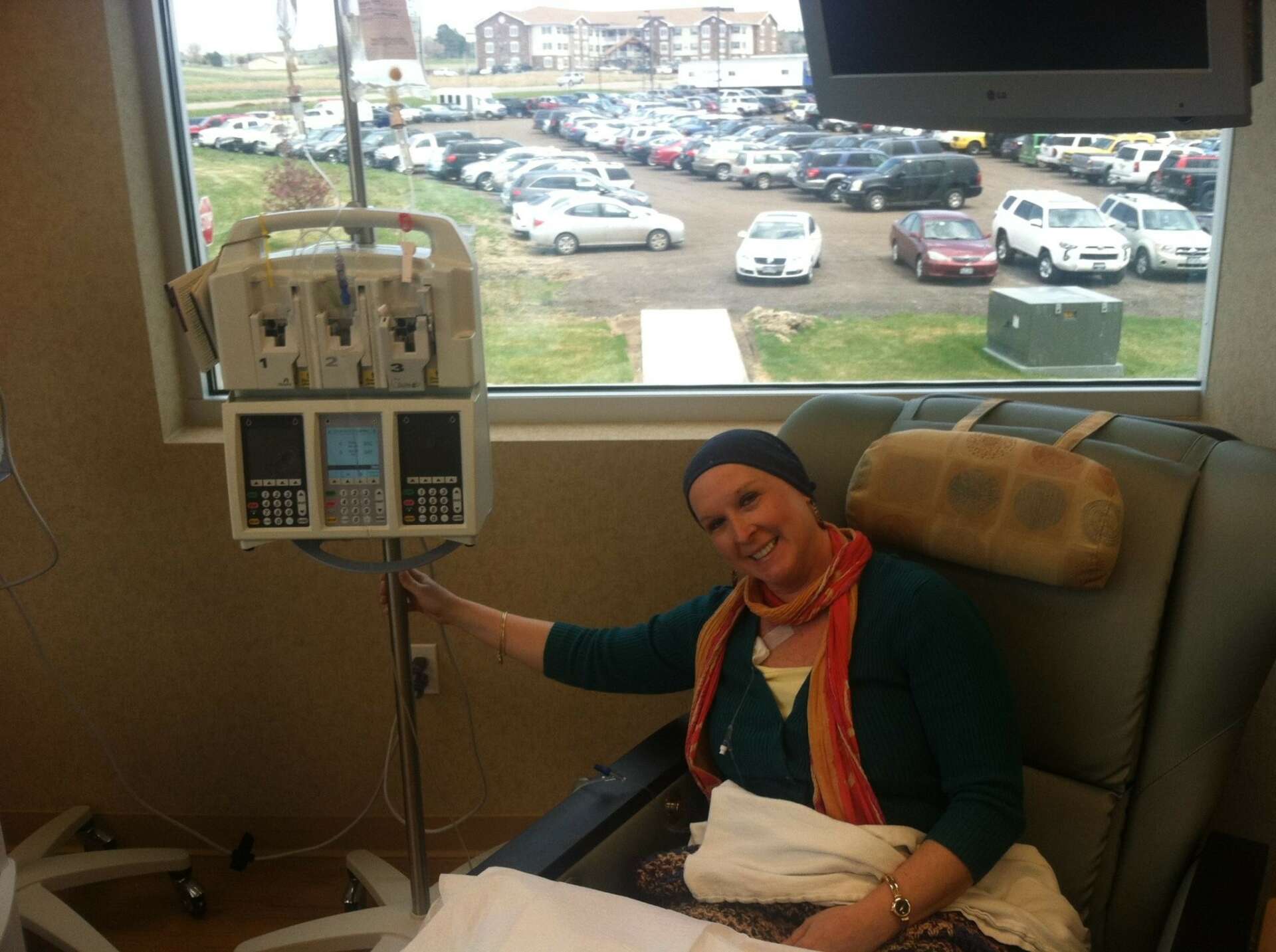
How did you build your audience on social media?
I was paranoid of social media. Petrified, actually. I was trained to publish only information that had been fact-checked a minimum of three times, so the shift in messaging protocols prompted by social media have been alarming. But my work as a psycho-oncology influencer led me to gradually begin the strange journey, first on LinkedIn and then Facebook. LinkedIn, in particular, is a critical tool for my networking efforts.
Since I plan to self-publish or perhaps dare to traditionally publish more books in the future, over three years ago I launched a monthly blog on my personal website, DianeMSimard.com. I blog about whatever is on my mind, and I am now approaching 400 blog followers with an open rate that ranges between 38 and 50 percent. Blogging has helped my writing shift from stiff to conversational, since I now write the way I speak. Writing will likely remain my favorite channel of expression, my comfort zone, and the regularity of a monthly blog instills discipline while building content.
My career success appears to be a combination of discipline and creativity.
Contact Info:
- Website: www.DianeMSimard.com
- Facebook: https://www.facebook.com/DianeMSimard1965
- Linkedin: https://www.linkedin.com/in/diane-moravec-simard/
- Youtube: https://www.youtube.com/channel/UCwISnFjv-BkD-HluXu-S1qw?view_as=subscriber


